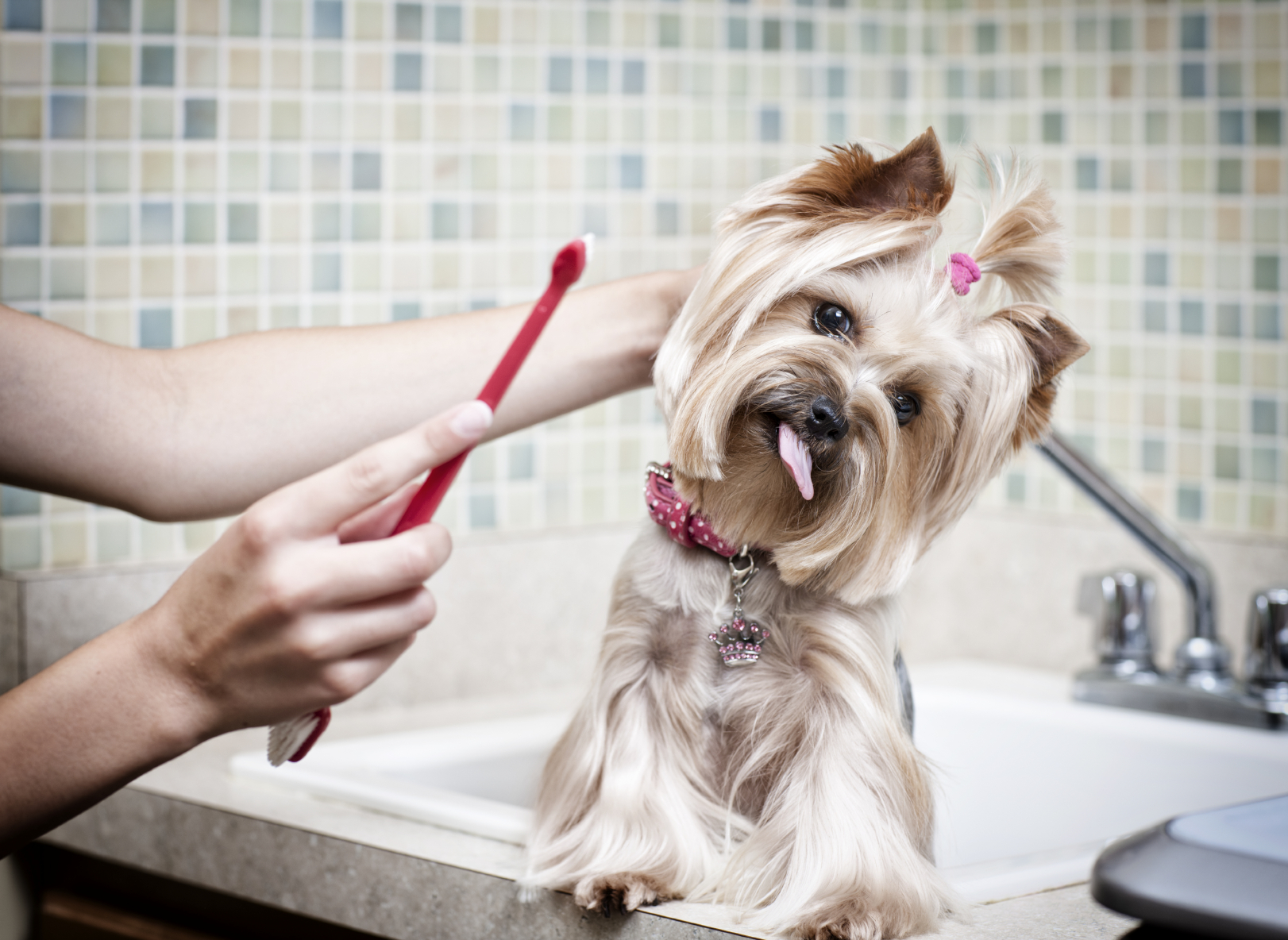The Tooth Of The Matter: Why Pet Dental Health Matters
 It wasn’t too long ago in human history that the idea of brushing a pet’s teeth or having them professionally cleaned was practically unthinkable, and the term “veterinary dentistry” didn’t even exist.
It wasn’t too long ago in human history that the idea of brushing a pet’s teeth or having them professionally cleaned was practically unthinkable, and the term “veterinary dentistry” didn’t even exist.
Fortunately for our pets, our knowledge of pet health has come a long way in recent years, and so has the field of veterinary dentistry. We now know that the right combination of home care, good nutrition, professional dental cleanings and exams can keep your pet healthy, pain free, and even extend his or her life.
Why is Pet Dental Care So Important?
Most pets begin to show signs of periodontal disease, an infection of the teeth, gums, and surrounding structures, by age 3. As with most health issues, if periodontal disease is left unchecked it can end up negatively affecting other parts of the body. Besides causing your pet significant pain and potential tooth loss, there is a strong link between dental disease and conditions such as kidney and heart disease, diabetes, and cancer.
Periodontal disease is one of the most common diseases we see and treat here at Lone Tree Veterinary Medical Center. Signs of periodontal disease in pets include:
- Foul breath
- Excessive drooling
- Worn, broken, or discolored teeth
- Swollen jaws or mouth
- Red or inflamed gums
- Bleeding from the mouth
- Pawing at the mouth
- Pain while eating, loss of appetite
If caught early, dental disease can be treated and many of the associated problems prevented. Give us a call if you notice any of the above symptoms in your pet.
Your Pet’s Dental Health Begins With You
Wielding a toothbrush anywhere near your pet’s pearly whites probably doesn’t top your list of exciting activities, but incorporating brushing into your daily pet-care routine is the single most effective thing you can do to keep his or her teeth healthy.
Besides brushing your pet’s teeth with a pet-specific toothpaste (never use human toothpaste as it contains ingredients that are toxic to pets), the following preventive measures can be done at home:
- Once per week, lift your pet’s lips and inspect the inside of his or her mouth for any problems or abnormalities.
- Good nutrition in the form of a high quality, dry food can help scrape plaque from the teeth. Your veterinarian may recommend a prescription “dental” food in certain cases.
- Chewing on dental-specific chews or softened rawhide chews, as well as use of a pet-specific oral rinse can also help to keep the teeth healthy.
The Benefits Of Professional Pet Dentistry
Most pets benefit from a professional dental exam from time to time. At each wellness visit, your veterinarian will carefully examine your pet’s mouth and make recommendations as to follow-up professional dental care.
Your pet’s dental health is of the utmost importance to us at Lone Tree Veterinary Medical Center, which is why we provide top quality, comprehensive dental care under anesthesia. Sedation is a necessary component of a dental procedure and ensures that your pet’s teeth are thoroughly cleaned and examined and radiographed, then properly cleaned, while keeping your pet safe and calm.
Our veterinarians and assisting certified veterinary technicians are trained and experienced in all areas of pet dental care. Our many services include:
- Examination of the oral cavity, including, tongue, teeth and gums
- Radiography to determine if there are problems below the gum line
- Tooth scaling and polishing
- Tooth extraction
- Fluoride treatment
- Bonding and sealing
- Root canal surgery
- Oral mass removal
Please don’t hesitate to give us a call with your questions or concerns regarding pet dental care, or to make an appointment. We look forward to seeing helping your pet have its healthiest smile!



